The Alfred P. Sloan Foundation was established in 1934 to support original research and education related to Science, Technology, Engineering, Mathematics (STEM), and Economics. They are also deeply committed to racial and gender justice, acknowledging the discrimination and exclusion from scientific institutions faced by women, Blacks, Latinos, and members of Indigenous communities. As early as the 1950s and 1960s, the Sloan Foundation made significant grants to support Historically Black Colleges and Universities (HBCUs) and the United Negro College Fund. Today, they continue to focus on projects that increase diversity, equity, and inclusion within the STEM fields.
In their recent grant distribution, The Sloan Foundation is championing research that seeks to understand how economically disadvantaged communities can participate in the green energy transition. Those with lower incomes disproportionately live in areas with poor air and water quality and experience higher energy, poverty, and insecurity rates. According to the U.S. Energy Information Administration, nearly one-third of households struggle to pay their energy bills. Many of these residents have inadequate heating or cooling and broken appliances. They are often forced to choose between paying their electric bill or other necessities. Over fifty percent are African Americans, followed closely by Hispanics. In addition, disadvantaged communities have unequal access to energy generation and battery storage, significantly impacting them as power outages occur more frequently due to climate change.
Research is crucial as It will provide measurable data to inform policies and programs to ensure our most vulnerable populations are not left behind in the transition to a cleaner energy economy.
While Federal and state agencies have numerous grant and funding programs designed to incentivize researchers to develop clean energy technologies, Black, Latino, and Native American scientists and researchers participate in these programs at much lower rates relative to their proportional representation in the research community. Further analysis is necessary to understand what is driving this trend, and those insights will produce policy-relevant briefs that provide recommendations to government agencies investing in clean energy research.
The HBCU CDAC Clean Energy Initiative identified and brought together a diverse body of institutions, researchers’ organizations, and advisors to use various disciplinary approaches, focusing on different geographic regions, to lead and support this effort.
The selected seasoned professionals include representatives from Johnson C. Smith University, Florida International University, Ohio State, the National Association of State Energy Officials, and BW research. The collaborative group is charged with researching and examining the systemic barriers facing researchers at HBCUs and other minority-serving institutions undertaking clean energy studies.
At the core, this grant program entitled Energy Insecurity, Distributional Equity, and Just Transitions, is intended to address inequality. We believe that research can only be successful when grant recipients are as diverse as their study populations. Fortunately, The Sloan Foundation believes that Diversity Equity and Inclusion in Science Technology Engineering and Mathematics (STEM) is a matter of fundamental justice to ensure that research outcomes benefit all constituents fairly. The HBCU CDAC Coalition and the HBCU Clean Energy Initiative are honored to lead this effort and be among an elite group of fellow changemakers selected to participate in this program.
To read more about the HBCU Clean Energy Initiative’s work, click here.
To read previous HBCU Clean Energy Initiative blogs, click here.

